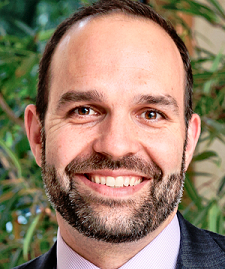Advertisement
|
NAB's LeGeyt Testifies on AI's Impact on Broadcasters
| RADIO ONLINE | Wednesday, January 10, 2024 | 12:26pm CT |





|
 |
NAB President and CEO Curtis LeGeyt testified before the U.S. Senate Judiciary Committee's Subcommittee on Privacy, Technology and the Law hearing, Oversight of A.I.: The Future of Journalism on Wednesday. In his testimony, LeGeyt emphasized broadcasters' irreplaceable role delivering free, local news, entertainment, sports and more to the audiences they serve from coast to coast.
While broadcasters embrace technologies that can advance this mission and enable them to better-serve communities with quicker alerts and more local news, LeGeyt shared broadcasters' concerns about AI without appropriate guardrails in place. In particular, he will speak about the unauthorized use of broadcasters' copyrighted content without attribution or compensation and AI's ability to manipulate images and videos of trusted radio and television personalities.
Below are his remarks as prepared for delivery:
Good afternoon, Chairman Blumenthal, Ranking Member Hawley and members of the subcommittee. My name is Curtis LeGeyt, and I am the president and CEO of the National Association of Broadcasters. I am proud to testify today on behalf of our thousands of local television and radio station members who serve your constituents every day.
Study after study shows that local broadcasters are the most trusted source of news and information. Our investigative reports have received countless awards for exemplifying the importance and impact of journalism as a service to the community. This includes WTNH News 8 in New Haven, which received an Edward R. Murrow Award for its reporting on child sex trafficking in the state. And, KMOX Radio and KMOV-TV in St. Louis, which were also recently honored with Murrow awards for their accurate and heartfelt reporting of a deadly school shooting. Stories like these are the antidote to the misinformation and disinformation that thrives online.
Broadcasters will build on this trust by embracing new AI tools that will help our journalists, particularly when it comes to delivering breaking news and emergency information. For example, one broadcaster is piloting a tool that will use AI to quickly cull through inbound tips from email and social media to produce recommendations that they can verify and turn into impactful stories. Other broadcasters are using AI to translate their stories into other languages to better serve diverse audiences. When AI can help these local journalists - real people - perform their jobs in their communities, we welcome it.
However, this subcommittee should be mindful of three significant risks that generative AI poses to broadcast newsrooms across the country.
First, the use of broadcasters' news content in AI models, without authorization, diminishes our audience trust and our reinvestment in local news. Broadcasters have already seen numerous examples where content created by our journalists has been ingested and regurgitated by AI bots, with little or no attribution. For example, when a well-known AI platform was recently prompted to provide the latest "news" in Parkersburg, West Virginia, it generated outputs copied nearly word-for-word from WTAP-TV's website. The station did not grant permission for use of this content, nor were they even made aware of it.
Not only are broadcasters losing out on compensation, but this unauthorized usage risks undermining trust as stations lose control over how their content is used and whether it is integrated with other unverified information. All of the concerns that drive Senator Klobuchar, Kennedy and this committee's work on the Journalism Competition and Preservation Act are exacerbated by the emergence of generative AI.
Second, the use of AI to doctor, manipulate or misappropriate the likeness of trusted radio or television personalities risks spreading misinformation or even perpetrating fraud. For example, a recent video clip of a routine discussion between two broadcast TV anchors was manipulated to create a hateful, racist, anti-Semitic rant. And Univision's Jorge Ramos, one of the most respected figures in American journalism, has repeatedly been a victim of AI tools appropriating and manipulating his voice and image to advertise all kinds of unauthorized goods and services. We appreciate the attention of Senators Coons, Blackburn, Klobuchar and Tillis to this growing and significant problem, which should be addressed in balance with the First Amendment.
Finally, the rising prevalence of deepfakes make it increasingly burdensome for both our newsrooms and users to identify and distinguish legitimate, copyrighted broadcast content, from the unvetted and potentially inaccurate content being generated by AI. To give a recent illustration, following the October 7 terrorist attacks on Israel, fake photos and videos reached an unprecedented level on social media in a matter of minutes. Of the thousands of videos that one broadcast network sifted through to report on the attacks, only 10% of them were authentic and usable. As I document in my written testimony, broadcasters across the country have launched significant new initiatives to bolster the vetting process of the content that is aired on our stations, but these efforts are costly and the problem grows more complex by the day.
In conclusion, America's broadcasters are extremely proud of the role we play in serving your constituents, and we are eager to embrace AI when it can be harnessed to enhance that critical role. However, as we have seen in the cautionary tale of Big Tech, exploitation of new technologies can undermine local news. This subcommittee is wise to keep a close eye on AI, as well as the way our current laws are applied to it.
Advertisement
|
Latest Radio Stories
2026 NAB Crystal Radio Award Winners Announced
|
Nielsen DMA Data Added to Magellan AI
|
CRS Honors to Reveal Hall of Fame, ACM Radio Winners
|
Advertisement
|
BEPN, Amber Grimes Launch ''If You Knew Better''
|
NAB State Leadership Conference Draws 570 Broadcasters
|
Entravision Acquires Playback Rewards' Technology
|

















